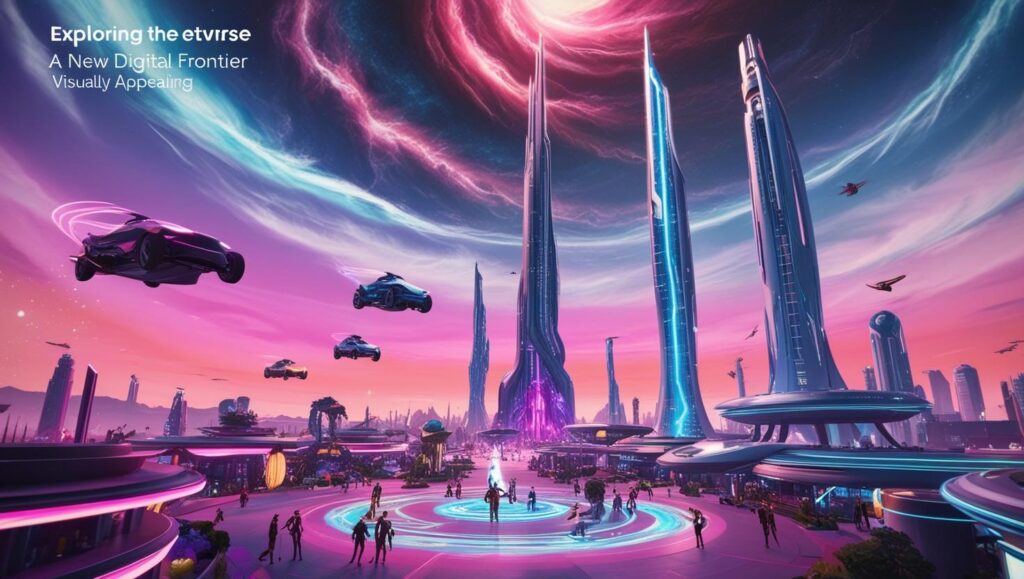The metaverse, a concept once relegated to the realms of science fiction, is rapidly emerging as a transformative force in the digital landscape. With technology advancing at an unprecedented pace, the metaverse promises to revolutionize the way we interact, work, and play in a virtual environment that blends seamlessly with our physical world. This article delves into the burgeoning world of the metaverse, examining its potential to reshape our digital experiences and the implications it holds for the future.
Unveiling the Metaverse: A Digital Revolution
The metaverse represents a convergence of virtual reality (VR), augmented reality (AR), and blockchain technology, creating a fully immersive digital universe. In this interconnected space, users can transcend geographical boundaries to interact in real-time using avatars, attend virtual events, and even create and trade digital assets. Tech giants like Meta (formerly Facebook), Microsoft, and Google are leading the charge, investing heavily in developing the infrastructure and tools necessary to bring the metaverse to life. As these companies pour billions into research and development, the concept of the metaverse is steadily transitioning from a theoretical framework to a tangible digital frontier.
Central to the appeal of the metaverse is its potential to redefine social interaction. Unlike traditional online platforms, the metaverse offers a more lifelike and engaging environment, where users can interact in three-dimensional spaces. This enhanced form of communication could not only revolutionize social media but also provide new platforms for education, business, and entertainment. Virtual classrooms and boardrooms could become common, allowing for more dynamic and accessible interactions. As digital and physical realities converge, the metaverse could fundamentally alter how we connect and communicate on a global scale.
However, the digital revolution heralded by the metaverse is not without its challenges. Issues such as data privacy, cybersecurity, and digital equity remain significant concerns. As users spend more time in virtual environments, the risk of data breaches and identity theft increases. Moreover, ensuring equitable access to the metaverse could prove challenging, given the disparity in technological infrastructure across different regions. Addressing these challenges will be critical to the metaverse’s success, requiring collaboration between tech companies, policymakers, and society at large to create an inclusive and secure digital ecosystem.
Navigating the Metaverse: Opportunities and Challenges
The metaverse opens up a plethora of opportunities across various sectors, potentially transforming economic models and creating new industries. For businesses, the metaverse could offer innovative ways to engage with customers through virtual storefronts and immersive advertising experiences. Companies could develop products and services tailored for the virtual realm, tapping into a new market of digital consumers. Furthermore, the rise of non-fungible tokens (NFTs) presents artists and creators with novel ways to monetize their work, fostering a vibrant digital economy within the metaverse.
Despite its promise, the metaverse also presents significant challenges that must be addressed to ensure its sustainable growth. One major concern is the environmental impact of sustaining such an elaborate digital infrastructure. The energy consumption required to power the servers and devices supporting the metaverse could have significant ecological consequences, necessitating the development of more efficient technologies and renewable energy solutions. Additionally, the psychological implications of spending extended periods in virtual environments are not yet fully understood, raising questions about mental health and societal well-being.
Navigating these challenges requires a proactive approach from stakeholders across the spectrum. Policymakers must establish regulatory frameworks that balance innovation with protection, ensuring that the metaverse develops in a manner that is beneficial to all. Collaboration will be key, as tech companies, governments, and civil society work together to create standards and best practices for this new digital realm. By addressing these issues head-on, the metaverse can fulfill its potential as a transformative force, reshaping the future of digital interaction and innovation.
As we stand on the precipice of the metaverse era, it’s clear that this digital frontier holds immense potential to redefine how we live, work, and interact. While the opportunities are vast, the challenges are equally significant, requiring thoughtful consideration and concerted effort from all stakeholders involved. By navigating this new landscape with an eye toward inclusivity, security, and sustainability, we can harness the power of the metaverse to create a more connected and dynamic world. The journey into this digital frontier has just begun, and its impact on our lives promises to be profound and far-reaching.


